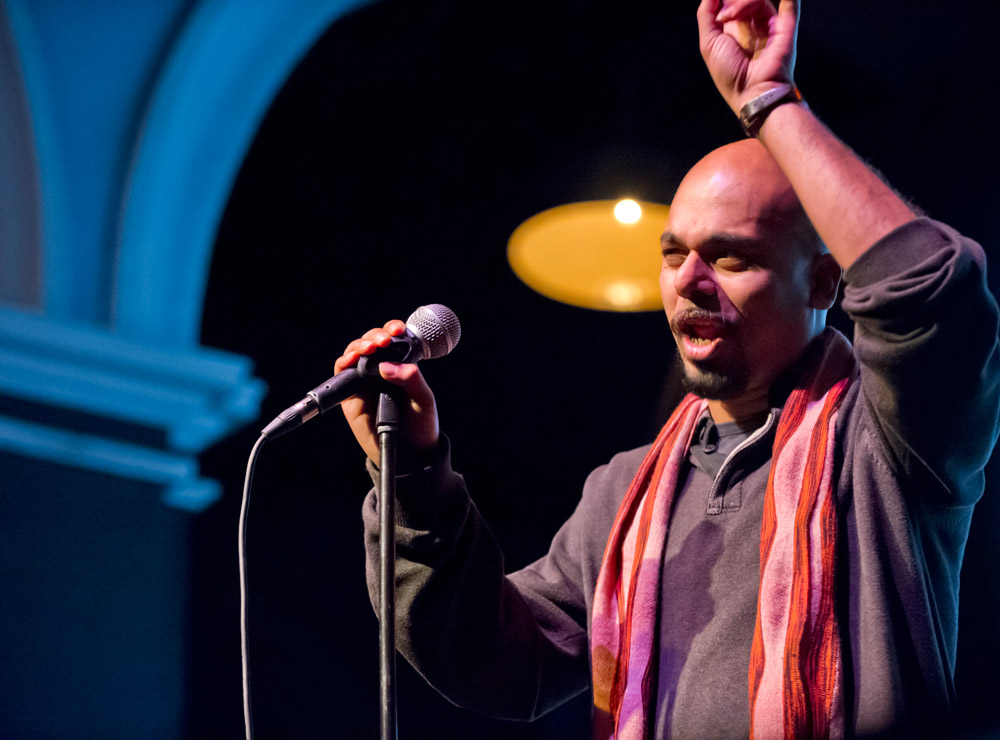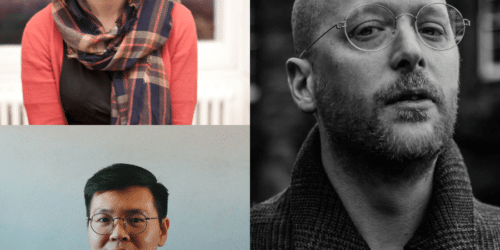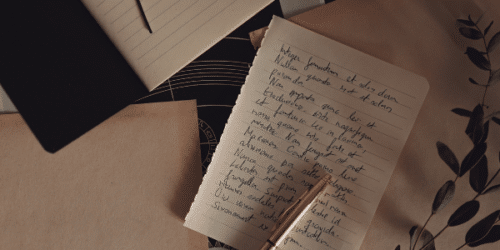
Siddhartha Bose is a poet, playwright, theatre-maker and academic who has published two poetry collections, and written and performed three works for theatre: Kalagora (2010), London’s Perverted Children (2012) and The Shroud (2014). His new play No Dogs No Indians will receive it’s world premiere at Brighton Festival, followed by a night at Norwich Arts Centre as part of the City of Literature strand of Norfolk & Norwich Festival 2017. Our Communications Intern Laura Jamieson caught up with Sid for a quick Q&A about writing, performance, and what he hopes audiences will take away from No Dogs No Indians.
For some viewers of ‘No Dogs No Indians’, British colonial rule will be a part of history they are not familiar with, particularly from a non-British perspective. What do you hope these viewers take away from the play, and what do you think everyone can learn from it?
Firstly, I should say that the purpose of the play isn’t solely to inform or educate. That should happen as a by-product of the experience of watching, and hopefully enjoying, an entertaining piece of theatre. The play doesn’t require prior knowledge of British colonial rule in India. The two protagonists of the play, Pritalata Waddedar and Shyamal Chatterjee, are complex characters (one historical, one fictional). They represent two opposing reactions to British rule—Pritalata rejects and chooses violence, while Shyamal appropriates and models himself on British culture. In this sense, their stories are relevant to current debates ranging around difference, power, and cultural appropriation.
You’ve previously written a one-man play, ‘Kalagora’, which saw success at the 2011 Edinburgh Fringe. What influenced your decision to stage it as a one-man play? What are the benefits and challenges of bringing actors on board to perform your stories?
Kalagora emerged from a particularly vibrant moment in the UK of poets writing and performing their shows. I do have some training as an actor, and while writing it, I always imagined it as a one-man performance with music and film. For No Dogs, No Indians, I was clear that I wanted to write a more conventional, two act play. The subject matter made this necessary. It’s a pleasure to work with a larger canvas and to focus solely on writing. We’re lucky to have a stellar cast with experience on stage and film. I can’t wait to see what they do with the writing.
As well as being a writer, you’re also a performer. Is the performance aspect of poetry and playwriting something you feel adds a necessary sense of dramatics to your works?
I’m sure it does. I love reading the word on the page, but it’s always a pleasure to hear words read aloud. Writing requires isolation. Performance is a shared experience. It’s nice to slip from one to the other.
Literature always takes us on journeys that cross borders
You’ve performed and written internationally, and ‘No Dogs, No Indians’ tells stories from India under British rule. What attracts you to an international approach to literature, and what can other readers and writers learn from considering other cultures in literature?
I think if we take some canonical examples of English literature—say Shakespeare or The Waste Land — it’s quite obvious that they are formed by a plethora of influences from, and references to, ‘international’ literatures. If I’m not mistaken, the earliest poems in Anglo-Saxon are tales of migration, wandering, and exile. The English language itself has historically been a mongrel language (as are many others). So I’d say that literature and language have always been international. National literatures don’t exist in isolation, even if we think they do. Literature always takes us on journeys that cross borders. In my own case, I’ve grown up across three continents, which explains my interest in different cultures.
A master of poetry, film, plays and novel writing, you must have to consider what medium to tell your story through when inspiration strikes. How do you decide on which form to use, and do you ever start writing for example, a poem, to realise it should instead be told through the power of a play?
I am currently working on my first novel, along with a new book of poetry. I think form is a function of content, and perhaps genres are as well. I’ll return to the metaphor of the canvas. In some cases, depending on the story you want to explore, you know that you require a large canvas, while in others, a smaller, more compact one works. With poetry as well, I rarely think in terms of individual poems, but more along the lines of a book. However, it’s all poetry, and storytelling, at the end of the day!
You may also like...
How to improve your poetry: top tips for aspiring poets
Embarking on a new poem can feel like an intimidating task for any poet. In this article, we share our top tips and a creative writing exercise that will help you have fun with your poetry.

18th April 2024
Watch ‘Poetry in the Digital Age’
Join Tse Hao Guang and Sam Riviere as they explore the creative responsibilities within found poetry and the unique relationship between a poet and their work.

12th April 2024
Making Strange: how to write captivating poetry
In this article, poet and NCW Academy tutor Helen Ivory shares her poem ‘The Square of the Clockmaker’, which was chosen to be one of the Poems on the Underground, and how she grabs her readers attention with her poetry by making things strange.

5th January 2024






